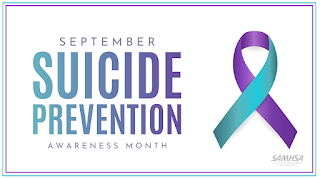More Screen Time Tied to Higher Rates of Depression, Suicidal Behavior in Teens
As a School Psychologist who works with middle and high school children, it's hard to miss the impact of cell phones. In the hallways at my high school, it's incredibly rare to pass a student who doesn't have a phone in hand. When I walk past the cafeteria during lunch, students are sometimes interacting with one another, but are more frequently interacting with their phones.
This article from Psych Central's website caught my attention because I often see firsthand how connected our students are to their phones. The article documents new research from San Diego State University. By surveying 500,000 teenagers from across the country and studying suicide statistics from the Centers for Disease Control (CDC), researchers saw some worrisome trends: the suicide rate for girls aged 13-18 increased by 65 percent between 2010 and 2015, and the number of female teens reporting symptoms of severe depression increased by 58 percent. That's an alarming increase in only 5 years.
The researchers then attempted to see if there was a statistical relationship between screen-time and depressive symptoms and suicide-related outcomes. They discovered that "48 percent of teens who spent five or more hours per day on electronic devices reported at least one suicide-related outcome, compared to only 28 percent of those who spent less than an hour a day on devices." Overall, depressive symptoms were more common in teenagers who spent a lot of time on their devices.
However, it is important to note that the findings were not all negative. The researchers learned that "spending time away from these devices and engaging in in-person social interaction, sports and exercise, doing homework, attending religious services, etc., is associated with fewer depressive symptoms and suicide-related outcomes."
The researchers were careful to to point out that this study is evidence of a correlation between screen-time and depression, but that doesn't necessarily mean that increased screen time actually causes mental health concerns. If you are the parent of a teenager who may be vulnerable to mental heath concerns, this new research is certainly worth paying attention to. Encouraging your child to limit screen time and engage with others socially may lead to better long-term outcomes.
This article from Psych Central's website caught my attention because I often see firsthand how connected our students are to their phones. The article documents new research from San Diego State University. By surveying 500,000 teenagers from across the country and studying suicide statistics from the Centers for Disease Control (CDC), researchers saw some worrisome trends: the suicide rate for girls aged 13-18 increased by 65 percent between 2010 and 2015, and the number of female teens reporting symptoms of severe depression increased by 58 percent. That's an alarming increase in only 5 years.
The researchers then attempted to see if there was a statistical relationship between screen-time and depressive symptoms and suicide-related outcomes. They discovered that "48 percent of teens who spent five or more hours per day on electronic devices reported at least one suicide-related outcome, compared to only 28 percent of those who spent less than an hour a day on devices." Overall, depressive symptoms were more common in teenagers who spent a lot of time on their devices.
However, it is important to note that the findings were not all negative. The researchers learned that "spending time away from these devices and engaging in in-person social interaction, sports and exercise, doing homework, attending religious services, etc., is associated with fewer depressive symptoms and suicide-related outcomes."
The researchers were careful to to point out that this study is evidence of a correlation between screen-time and depression, but that doesn't necessarily mean that increased screen time actually causes mental health concerns. If you are the parent of a teenager who may be vulnerable to mental heath concerns, this new research is certainly worth paying attention to. Encouraging your child to limit screen time and engage with others socially may lead to better long-term outcomes.




Comments
Post a Comment